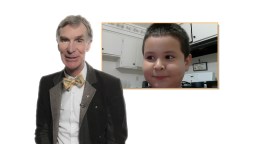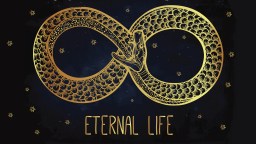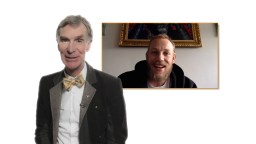Videos
All Stories
We tend to think con artists are smooth talkers and persuasive sellers, but listening is their most important quality, says Maria Konnikova, who has written a new book on con artistry.
▸
4 min
—
with
Why can’t we marshal the enthusiasm we have for exploring Mars to solve problems on planet Earth? Bill Nye says we’re natural explorers and that potential discoveries on Mars have captured our imagination.
▸
7 min
—
with
Medical devices like pacemakers and insulin pumps will save many lives, but they also represent an opportunity to computer hackers who would use the Internet to cause havoc.
▸
6 min
—
with
Asian philosophies have proven extremely influential in the United States, but are they being interpreted correctly? Frequently not, says Harvard China historian Michael Puett.
▸
6 min
—
with
Companies like Facebook no longer depend on traditional economic exchanges to turn profit, so what does this mean for the consumer? When we’re not paying money, we’re paying in other ways, says Douglas Rushkoff.
▸
6 min
—
with
Too many people understand meditation as a way to banish worldly thoughts, but your thoughts will never go away, says Jon Kabat-Zinn. You’ve got to observe them like a scientist.
▸
5 min
—
with
Just about everyone engages in office gossip, or at least entertains those who do. Yet we all recognize gossiping as unprofessional behavior. Something’s deeply wrong at work, says Robert Kegan.
▸
6 min
—
with
When you are experiencing writer’s block, more than your writing is blocked, says memoirist and novelist Augusten Burroughs. Here is his creative solution to get you writing again.
▸
6 min
—
with
Understanding the shape of the Earth is all about its mass, says Bill Nye the Science Guy. If it weren’t for all the water, rocks, metals, and lava on our planet, it might have an irregular form.
▸
3 min
—
with
Terrorism in Europe is a generational problem, says Juliette Kayyem. While the US has effectively integrated immigrant communities into its national identity, European nations have not.
▸
5 min
—
with
At some point this century, we will confront the prospect of immortality, says Steven Kotler. After our bodies die, it will be possible to upload our minds into a computer, and then download them into another body.
▸
3 min
—
with
It’s harder for most people to making a living now than it was before the rise of online businesses like Facebook and Amazon. That’s because the digital economy is hurting the real economy.
▸
13 min
—
with
Three current trends hint at the future of global business: the rise of artificial intelligence, the shifting center of economic gravity from west to east, and new existential problems like obesity and climate change.
▸
4 min
—
with
Self-affirmation techniques are the butt of many jokes, including a famous Saturday Night Live sketch with Al Franken. But value affirmation is something different, says Harvard’s Amy Cuddy.
▸
5 min
—
with
Taking risks in business means that sometimes you will fail, says AOL cofounder Steve Case. But failing in business actually means gaining life experience, so you’ll do better the next time around.
▸
3 min
—
with
An honest inquiry into the source of stress in your life will yield some surprising results. If you’re mindful, present, and inquiring, you won’t be able to fool yourself, says Byron Katie.
▸
8 min
—
with
Nature is a delicate balancing act, says Bill Nye the Science Guy. It’s important we understand that the same system making Earth warm enough to live on is also driving climate change.
▸
3 min
—
with
If you want to understand trends in the history of global violence, look to data, not headlines, says Harvard psychology professor and linguist Steven Pinker.
▸
4 min
—
with
Netflix is a major player in the so-called “big data” game, as the success of programs like House of Cards demonstrates, but they don’t envy larger companies like Google or Facebook for one simple reason.
▸
5 min
—
with
Novelist Joshua Cohen doesn’t think colleges and universities should coddle students, but protect free speech and free expression of language, even the harmful language of some literature.
▸
4 min
—
with
It’s incredible to think that Saturday Night Live and Google, given their very different goals, create teams of people similarly. But as reporter Charles Duhigg discovered, they very much do.
▸
6 min
—
with
Hold’s team has created a system that transfers knowledge from more experienced members of an organization to those who need the information immediately to work on a deliverable.
▸
3 min
—
with
Psychiatrist Dr. Gail Saltz discusses the artistic qualities that make Vincent van Gogh legendary, and how his unusual personality, affected by a certain mental disorder, affected his work.
▸
5 min
—
with
Edwin Hubble’s discovery that the universe is expanding changed not only the way we think of the universe, but also how we understand the passage of time. Bill Nye the Science Guy explains…
▸
5 min
—
with
The future of the workforce is about building stronger communities, not talent hunting for the most aggressively competitive employees. Millennials are leading the way in making this change.
▸
2 min
—
with
Killing prejudice with kindness is probably the best way to go, says former climate skeptic Michael Shermer. The secularist discusses his history with religion and how he speaks about it now.
▸
3 min
—
with
Nobel laureate Frank Wilczek argues that understanding basic physical laws is sufficient to grasp how the mind works, but that may not explain everything about the mind.
▸
5 min
—
with
What often begins as a former girlfriend or boyfriend making contact on Facebook can easily result in a physical relationship. Psychiatrist Gail Saltz explains how to avoid cheating on your partner.
▸
4 min
—
with
People learn in a variety of ways, explains educational pioneer Kelly Palmer. At LinkedIn, she’s helped build a platform that offers on-demand learning to adults building their careers.
▸
3 min
—
with
After the terrorist attacks in Brussels and Paris, technology expert Marc Goodman shares how insurgents use their media savvy and technological prowess to outmaneuver law enforcement.
▸
6 min
—
with





























